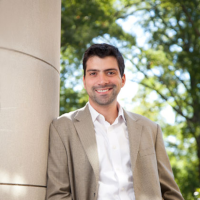Felipe De Brigard (Duke University)
Times imagined and remembered.
26.11.2020, 16:15-17:45 CET (UTC+01:00).
Online Lecture via zoom.
Login information:
Zoom:
https://us02web.zoom.us/j/82970505769?pwd=NGpHL3VHUUg0bktTbnBIT2kxMWVYZz09
- Meeting ID: 829 7050 5769
- Password: 8rraW0
Abstract: Recent evidence suggests that episodic memory, episodic counterfactual and episodic future thinking share common cognitive and neural mechanisms. Some researchers interpret these findings as supporting the more general claim that these three kinds of mental simulation recruit common neural structures because they share an adaptive purpose, namely to enable simulating possible events in order to hedge future uncertainty. But how exactly do these simulations help us at a later time? One possibility, inspired by the work of D.H. Ingvar, is that these kinds of mental simulations serve their future-oriented role only if one is able to properly recall them when the right time comes. These “memories for the future”, as Ingvar called them, have just recently become the object of experimental investigation. In this talk, I seek to contribute to this nascent literature by discussing how we encode and retrieve temporal information from episodic simulations.


